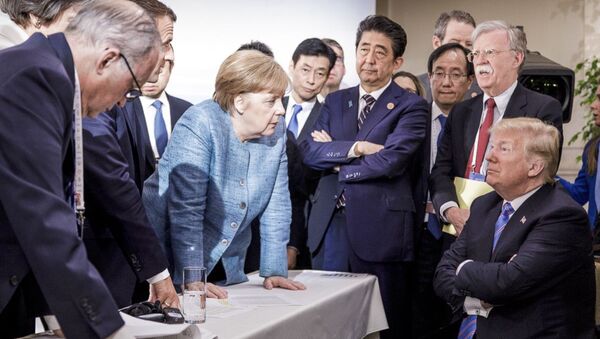The ramifications of the escalating US-China trade war are likely to be felt at the summit of the world’s most powerful leaders, the G20, which has not been as fraught with tensions as today since its establishment at the height of the global financial crisis ten years ago, according to the French newspaper Le Figaro.
‘With great difficulties related to the stance of the United States, it won’t be easy to arrive at signing a joint communiqué’, the French media outlet cited a source at the Elysee.
In addition to ‘numerous diplomatic reasons for tensions’, Le Figaro named two key issues that have split the G20: trade and climate.
According to the media outlet, over the past few weeks, President Donald Trump has relentlessly been ‘running hot and cold’ against China, either mulling over an agreement with China’s Xi Jinping, or threatening Beijing with new tariffs.
In an interview with The Wall Street Journal, Trump raised the prospect of slapping China with a 25 percent tariff on another $267 billion in Chinese imports if forthcoming negotiations with Xi don’t prove fruitful.
READ MORE: Chinese FM: Beijing to Oppose Actions Undermining Its Interests at G20 Summit
As for the second major issue, the climate, the newspaper suggests that Trump will be left alone around the G20 table. Having declared on Monday that he did not believe in the conclusions of a bulky report from his own federal government that predicted a devastating effect on the economy from climate change, Trump is preparing to a confrontation, the report says.
Le Figaro also pointed to the fact that the recent APEC summit in Papua New Guinea ended in disarray without a final communique due to Beijing-Washington disagreements, while back in June, Trump decided to revoke his endorsement of the G7 communique.
‘These two precedents are haunting all diplomats’ ahead of the Buenos Aires summit, the paper says.
Nearly a week ago, Chinese Foreign Ministry said it would oppose statements and actions undermining its fundamental interests at the upcoming summit, and called on world leaders to seek consensus and settle differences through dialogue.



